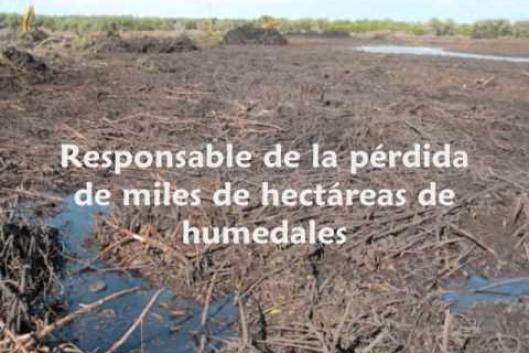Mangroves are a unique ecosystem hosting incredible biodiversity: migratory birds, marine creatures and reptiles in addition to associated species of flora. They function as a natural water treatment system; as spawning grounds for fish they provide several resources to local communities who directly or indirectly depend upon them for their livelihoods and sustenance. Intact mangroves form a natural coastline buffer against floods, storms or other natural disasters such as tsunamis and hurricanes protecting the coasts from the erosion.
Despite all their valuable functions mangroves are threatened by several industrial activities including the expansion and operation of the aquaculture industry, primarily industrial shrimp farming.
Since 2004, the Latin American mangrove organisation Redmanglar Internacional (a network gathering communities, NGOs, scientists and activists working in defence of mangroves) commemorates every July 26 the “International Mangrove Day” as a global call to action against the ongoing loss of mangrove forests and, subsequently, the disruption of local communities that depend upon them. The theme of this year's International Day is entitled “Mangroves YES, Shrimp farms NO” to highlight the role of industrial shrimp farming in the degradation and destruction of mangroves.
Another threat to mangroves is the ongoing attempt of certification of shrimp farming, an intrinsically destructive activity that cannot be certified. Several NGOs working with local communities in the shrimp producer-nations and consumers in the shrimp-importing nations have rung the alarm bell regarding the draft standards and the whole fault-ridden WWF-ShAD (Shrimp Aquaculture Dialogue) process (see WRM Bulletin Nº 166). Redmanglar has joined the action and sent an Open Letter addressed to the President of World Wildlife Fund (rejecting the attempt to “greenwash” industrial shrimp farming, an intrinsecally destructive activity). The full letter can be read athttp://www.wrm.org.uy/deforestation/
mangroves/International_RedManglar_letter_against_WWF_certification.pdf.
Redmanglar has also produced a video (VODq2soHrGQ">) that briefly describes the ecological and social impacts of industrial shrimp farming. They invite all of us to use, share and disseminate it through our websites, e-mails, facebook.
Mangrove Action Project (MAP) is another organisation working for mangroves. In the search of a real protection of mangroves MAP is engaged in a bottom-up approach involving local mangrove forest communities in conserving, restoring and maintaining coastal mangrove forest ecosystems. The project is called The Ecological Mangrove Restoration (EMR) and is based upon a set of basic ecological principles capable of restoring a much more naturally functional and biodiverse mangrove ecosystem when compared to other more capital and labour intensive methods such as hand planting alone. The aim of the project is that local communities be directly involved in the conservation and restoration of mangrove ecosystems, as well as in forming sustainable solutions to mangrove loss that will benefit them directly. A full description of the project can be read (in English) athttp://wrm.org.uy/deforestation/mangroves/Need_For_EMR.pdf
We join all the communities and groups that work for the protection of mangroves to say in a loud voice: “Mangroves YES, Shrimp farms NO”
